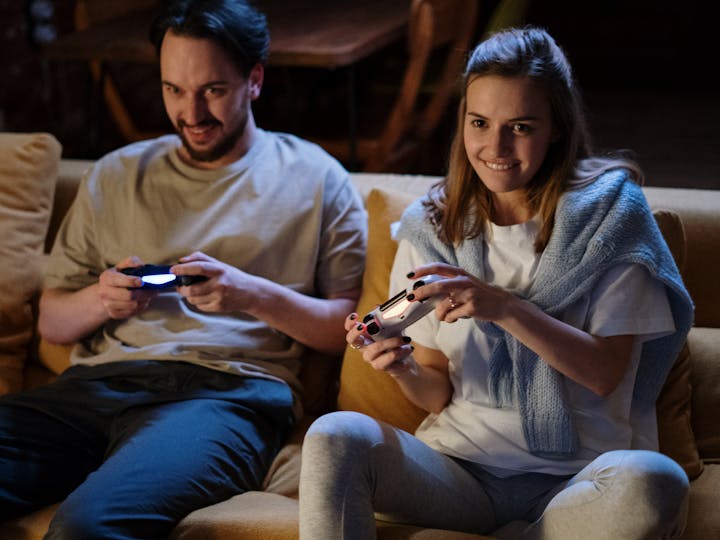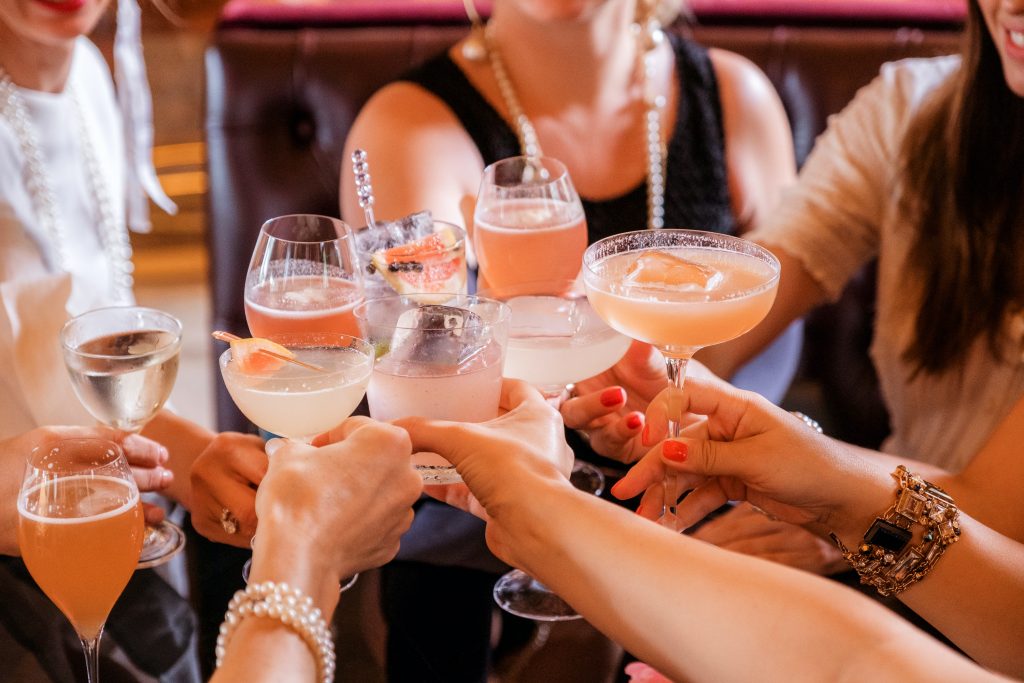A deep dive into how games connect people across the world—one match, raid, and forum at a time.
Introduction: The Social Side of Gaming
Gaming isn’t just about pixels, high scores, or achievements. It’s about people. Behind every avatar is a person seeking connection—whether it’s for competition, collaboration, or simply fun. Online gaming has evolved into a global phenomenon that unites players from diverse backgrounds, cultures, and languages, forming powerful communities in digital spaces.
Today, gaming is as much a social experience as it is an entertainment activity. From the guilds of World of Warcraft to the fan servers of Minecraft, communities have become the beating heart of the gaming world.
In this article, we explore how gaming fosters online communities, the tools that power these digital gatherings, and how this unique culture continues to influence everything from social interaction to business and even mental health.
The Evolution of Multiplayer Games and Community Building
From Arcades to Always-Connected
The roots of community gaming go back to the arcades of the ’70s and ’80s. Local players would gather, exchange tips, and watch each other play. But the real explosion of community happened with the rise of the internet.
- 1990s–2000s: LAN parties and early online platforms like Battle.net and Xbox Live.
- 2010s–Present: MMORPGs, competitive eSports, Discord, Twitch, and social games created community ecosystems.
Games moved from being isolated experiences to shared adventures.
Types of Gaming Communities
Gaming communities come in many flavours. Here’s a look at a few of the most prominent ones:
1. Clan and Guild Communities
In games like Destiny, Final Fantasy XIV, or Call of Duty, players form persistent groups. These guilds provide:
- Shared objectives.
- Internal ranking systems.
- Chat and event organisation.
- A strong sense of belonging.
2. Modding Communities
Games like Skyrim, The Sims, and Minecraft have thriving modding scenes. Players collaborate to:
- Create custom content.
- Improve game mechanics.
- Share and distribute creations globally.
3. Forum and Fanbase Communities
Dedicated Reddit threads, fan forums, and wiki platforms allow players to:
- Discuss lore.
- Share fan art.
- Strategise gameplay.
These are the hubs where passion lives and breathes.
4. Streaming and Influencer-Based Communities
Platforms like Twitch, YouTube Gaming, and Kick allow influencers to build massive fan followings. These communities extend beyond the game, engaging in:
- Live chat.
- Donations.
- Sub-only events.
How Games Encourage Social Interaction
Games are not just social by coincidence—they’re built that way.
Co-op Mechanics
- Require teamwork to win.
- Encourage voice chat and strategy.
- Promote shared achievements.
Examples: Fortnite, It Takes Two, Valorant
In-Game Economies
- Trade systems build interdependence.
- In-game marketplaces encourage negotiation and social ties.
Examples: EVE Online, RuneScape
Leaderboards and Competition
- Healthy rivalry creates consistent engagement.
- Climbing ranks often brings players into closer interaction.
Examples: League of Legends, Clash Royale
Platforms That Power Gaming Communities
1. Discord
- The gold standard for real-time community chat.
- Offers voice, video, and integrations with games.
- Enables server-based role systems and bots for event management.
2. Reddit
- Deep-dive discussion hub.
- Users share builds, memes, guides, and more.
- Cultivates subcultures around every major game.
3. Steam Community
- Group functions.
- Reviews, screenshots, and discussion threads.
- Allows developers and fans to interact directly.
4. Twitch & YouTube Gaming
- Bring game content to millions.
- Chat builds parasocial and real-world connections.
- Hosts charity streams and collaborative events.
Why Online Gaming Communities Thrive
1. Shared Passion
Games offer common ground. Even complete strangers bond over shared experiences like:
- Beating a difficult boss.
- Winning a competitive match.
- Grinding together for hours.
2. Inclusivity and Accessibility
You don’t need to be in the same country—or even speak the same language—to play together. Emojis, emotes, and game mechanics act as universal languages.
3. Continuous Engagement
Games are no longer one-and-done. With live-service models, content updates, and battle passes, players return regularly—and so do their communities.
4. Identity and Expression
Gamers customise:
- Avatars.
- Nicknames.
- In-game housing or outfits.
These features allow people to express themselves, creating unique digital personas.
Mental Health and Belonging
Gaming communities offer a form of emotional refuge.
- Support Systems: Many gamers report finding help in their gaming friends during hard times.
- Confidence Building: Successfully contributing to a group boosts self-esteem.
- Therapeutic Value: Role-playing or escaping to a game world provides relief from stress.
A study from Oxford University found that gaming—even for extended periods—can have positive effects on well-being, especially when connected to social engagement.
Gaming Communities in Action: Real-World Examples
1. Final Fantasy XIV’s Heartwarming Legacy
This MMORPG is known for its tight-knit community. Players support each other through life events, with weddings, in-game funerals, and fundraisers for sick guildmates.
2. Minecraft’s Infinite Community Creativity
From server-wide city building to educational versions used in classrooms, Minecraft has become a beacon of collaborative creativity.
3. Fortnite Concerts & Events
Virtual concerts by artists like Travis Scott and Ariana Grande transformed Fortnite from a battle royale into a cultural stage.
Esports: Communities at Scale
eSports has taken competitive gaming and turned it into a global event. With millions of fans, stadium tournaments, and professional teams, it’s the epitome of how gaming builds thriving communities.
- Team fandom: Fans support teams just like in traditional sports.
- Local pride: Regional tournaments bring communities together.
- Massive online following: Entire Twitch chats light up during eSports finals.
Examples: League of Legends Worlds, The International (Dota 2), Valorant Champions Tour
Gaming and Real-World Relationships
It’s not uncommon to hear about:
- Friends meeting in games and travelling internationally to meet IRL.
- Couples marrying after meeting through shared gameplay.
- Long-distance friendships that survive years thanks to regular gaming sessions.
Gaming transcends borders, proving digital connection can be just as powerful as in-person interaction.
The Mid-Point: stellarspins online blackjack australia
In the realm of online casinos, community building takes on a unique shape. Platforms like stellarspins online blackjack australia are leading the charge in blending interactive gaming with social features—creating more than just a place to play, but a place to connect.
How They Do It:
1. Live Dealer Games
Players get to:
- Chat with the dealer and other players.
- Experience authentic table dynamics.
- Share wins and celebrate in real-time.
2. Tournaments and Events
Scheduled blackjack or roulette tournaments build a sense of urgency and cooperation, bringing regular players back and forging strong, competitive communities.
3. Loyalty and VIP Clubs
Regular players are recognised and rewarded. This creates an elite “club-like” feeling, offering:
- Exclusive perks.
- Chat groups.
- Special events.
4. Gamification
Leaderboards, missions, and achievements aren’t just solo activities—they’re rallying points for community bragging rights and shared excitement.
At stellarspins online blackjack australia, gaming is more than gambling—it’s a socially charged, community-driven experience.
Challenges Faced by Gaming Communities
1. Toxic Behaviour
Where communities gather, trolls may follow. Toxicity, harassment, and gatekeeping remain challenges. Game studios must enforce:
- Reporting tools.
- Moderation systems.
- Bans for offensive behaviour.
2. Inclusivity
Gamers from underrepresented groups often face barriers. Building welcoming communities requires:
- Diversity in game characters.
- Inclusive language and imagery.
- Zero-tolerance policies for hate speech.
3. Platform Fragmentation
Gamers are split across platforms—Discord, Reddit, Twitch, in-game chats. Unifying these spaces remains a challenge but also an opportunity for innovation.
Brands and Businesses Tapping into Gaming Communities
Gaming communities offer massive potential for marketers and businesses:
- Product integration: Skins, gear, and in-game placements.
- Influencer partnerships: Gamers trust creators they follow.
- Brand communities: Companies like Razer, HyperX, and Logitech maintain active gamer ecosystems.
When brands respect the community, they gain lifelong fans.
Education and Learning Through Gaming Communities
Gaming isn’t just fun—it can be educational. Communities built around game-based learning platforms are becoming common.
Examples:
- Kerbal Space Program teaching physics.
- Civilization inspiring interest in history and politics.
- Minecraft: Education Edition used in classrooms to teach math, geography, and social skills.
Forums, Discords, and YouTube channels centred around these games often act as unofficial learning platforms.
The Future of Gaming Communities
Looking ahead, we expect to see:
1. AI-Moderated Spaces
AI tools that detect and moderate hate speech or inappropriate behaviour in real-time.
2. Metaverse Integration
Games as persistent social spaces (e.g., Meta’s Horizon Worlds, Roblox, Fortnite Creative).
3. Community-Driven Game Development
More games built in collaboration with their own communities through feedback loops and early access.
4. Cross-Platform Everything
Gamers playing and interacting seamlessly across consoles, PCs, and mobile devices.
Final Thoughts: It’s Always Been About People
Whether you’re deep into an MMORPG raid, watching your favourite streamer, or playing a casual blackjack round at stellarspins online blackjack australia, the magic of gaming lies in its ability to connect us.
Gaming is no longer just a hobby—it’s a global social movement. In a world where isolation is a growing concern, these online communities act as bridges, support systems, and creative outlets.
So next time you log into your favourite game, remember: you’re not just pressing buttons—you’re building bonds.





